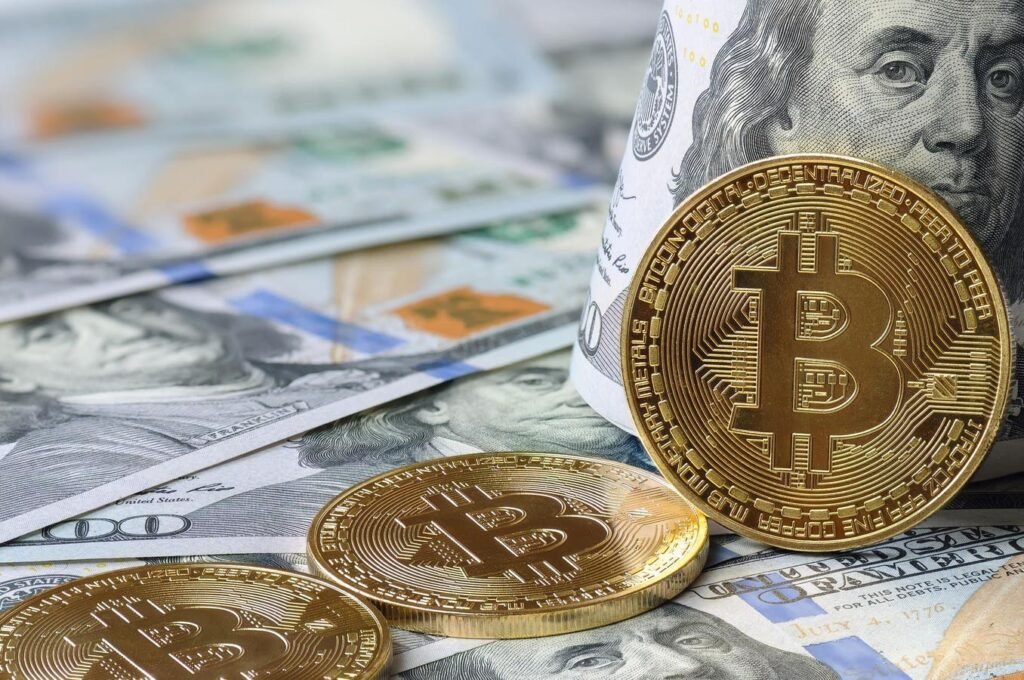The crypto executive order would affect investors and policymakers.
Cryptocurrency has evolved from a niche digital asset into a global financial force, prompting discussions about its potential role in national economies. Some countries, like El Salvador and the Central African Republic, have already designated Bitcoin as legal tender, while others remain cautious about fully integrating decentralized digital currencies into their financial systems.
Now, with the United States under a second Trump administration, digital assets — led by Bitcoin — are once again in the spotlight. President Trump’s recent executive order promoting cryptocurrency and exploring a national digital asset stockpile signals a major shift in U.S. policy from the Biden administration. “The digital asset industry plays a crucial role in innovation and economic development in the United States, as well as our Nation’s international leadership,” the order states.
This marks a dramatic shift from Trump’s earlier skepticism of cryptocurrency. In 2019, he called Bitcoin a “scam” and insisted the U.S. dollar would always remain dominant. However, his 2024 campaign received significant financial backing from crypto investors, leading to a pro-crypto pivot. His administration is now aggressively pushing digital asset adoption, appointing pro-crypto regulators and advocating for Bitcoin-friendly policies.
But what would it mean for the U.S. to officially designate cryptocurrency as a national currency? Could this be a strategic advantage or a financial misstep? The answers directly impact the economic, regulatory, and geopolitical landscape, especially as the U.S. reassesses its role in the global crypto ecosystem.
Economic Considerations
One of the biggest challenges of adopting cryptocurrency as a national currency is its volatility. Bitcoin, for instance, has seen price swings of as much as 50% or more in a matter of months. Unlike fiat currencies managed by government central banks, most cryptocurrencies operate on decentralized networks, making price stability difficult to maintain. However, stablecoins like USDC, which are backed by reserves and pegged to an underlying currency or asset, offer relative stability within the crypto ecosystem.
Potential Benefits
- Financial Inclusion: Cryptocurrencies could provide banking solutions to unbanked populations, particularly in developing nations with weak financial infrastructure.
- Reduced Transaction Costs: Digital currencies streamline cross-border payments, cutting out expensive remittance fees.
- Inflation Hedge: Bitcoin’s fixed supply makes it resistant to inflationary monetary policies, an attractive feature for economies struggling with currency devaluation.
Potential Risks
- Extreme Price Fluctuations: A national economy tied to a volatile asset could experience significant instability.
- Loss of Monetary Control: Governments would forfeit traditional economic tools like interest rate adjustments and quantitative easing.
- Public Adoption Challenges: Even in crypto-forward countries, businesses and consumers may be reluctant to use digital currencies due to usability concerns.
Trump’s executive order doesn’t go as far as designating Bitcoin as an official currency, but it does set the stage for deeper integration into the U.S. financial system. However, before considering such a move, the government must first address a fundamental question: Can it responsibly manage national assets in a way that protects economic stability and public trust?
Public Trust in Crypto Policy
Governments have a fiduciary responsibility to manage national assets prudently, ensuring economic stability, protecting taxpayer interests, and maintaining liquidity for emergencies. Proposals like Trump’s national digital asset stockpile and adding Bitcoin to central bank reserves raise serious concerns about financial risk and responsible asset management.
Unlike gold or U.S. Treasury bonds, Bitcoin’s extreme volatility makes it a speculative reserve asset, potentially exposing public funds to unnecessary risk. The public trust issue is just as critical. Without clear oversight, a government-held Bitcoin stockpile could invite market manipulation risks, raising ethical and transparency concerns.
A responsible approach requires independent economic assessments before committing public funds to speculative digital assets, public oversight mechanisms to ensure transparency in crypto-related government initiatives, and global financial coordination to align digital asset policies with international monetary stability. Crypto has a role in financial innovation, but short-term political rhetoric should not dictate long-term economic policy.
Geopolitical Implications
The U.S. government’s historical approach to seized Bitcoin has been to auction it off, but Trump’s executive order suggests a strategic shift to hold it as part of a national asset stockpile.
Geopolitical Pros
- Challenging Dollar Competitors: A U.S. digital asset strategy could counteract the rise of competing CBDCs from China and the European Union.
- Strengthening Trade Alliances: Crypto-friendly policies could attract international partners and reduce reliance on legacy banking networks.
- Soft Power In FinTech Innovation: The U.S. could leverage blockchain technology to set global financial standards.
Geopolitical Cons
- Threat To Sanctions Power: If more countries shift to decentralized finance, it could undermine U.S. sanctions.
- Inherent Cybersecurity Risks: A national Bitcoin reserve could be a target for cyberattacks.
- Regulatory Fragmentation: Global financial coordination could become more complicated if countries adopt conflicting crypto regulations.
A Delicate Balancing Act
Designating cryptocurrency as a national currency remains a complex and controversial issue. While the U.S. has not yet taken this step, Trump’s executive order represents the most significant policy shift in U.S. crypto history. As more nations explore crypto adoption, the U.S. must decide whether to lead or risk falling behind in the rapidly evolving digital financial landscape.
One thing is certain: The future of money is digital, and America is making its move.

